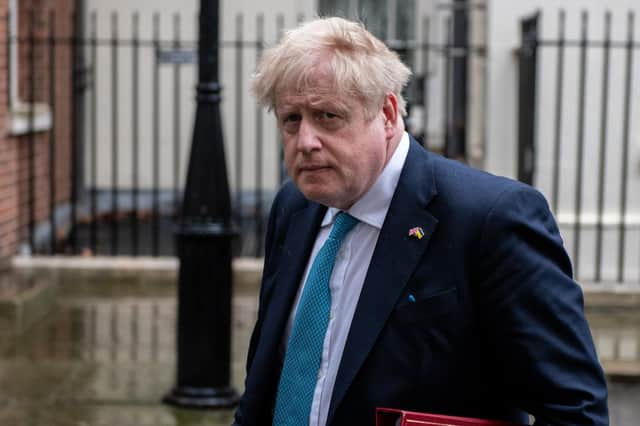Boris Johnson: As recession looms, what's the plan, Mr Prime Minister? – Scotsman comment


The reason is that – unlike the admirable clarity shown by the Prime Minister over the war in Ukraine, with no doubt about the UK’s resolute support for Kyiv – he has failed to demonstrate he has a clear plan or even a guiding philosophy to see the country through increasingly troubled times.
Shevaun Haviland, of the British Chambers of Commerce, issued the latest plea for help, saying companies were facing a “perfect storm” of spiralling energy prices, the rising cost of raw materials, staff shortages and supply chain problems.
Advertisement
Hide AdAdvertisement
Hide Ad“This has to change; we are on limited time. The government has until the autumn budget to reset, rethink and get their house in order... they need to put in place support for businesses now to weather this storm,” she said, calling for “a long-term economic strategy for growth”.
Haviland added that relations between the UK and EU must improve, with a need to “reduce the red tape and cost burdens” on British exporters.
Johnson was right to say that the “price of freedom” is “always worth paying”, when asked about those worried that costs were being driven up by the Ukraine War.
However, the Prime Minister must be careful to avoid the impression he is using the conflict to absolve himself of responsibility to deal with problems at home.
So far, the main theme of government policy seems to be a desire to keep Johnson in Number 10. For example, a windfall tax was only levied on energy firms to help people pay their bills after rising public anger about the government’s lack of effective action and the Partygate affair.
But high energy bills are just one aspect of a much wider crisis. There are growing fears of recessions in the UK, EU and US, with this country thought to be at particular risk.
Johnson needs to identify the problems – which necessitates admitting to those caused by Brexit – draw up a clear strategy to deal with them, and then communicate this to business and the wider public.
If he fails to do this, he will have failed the country just when it needed strong, effective leadership.
Comments
Want to join the conversation? Please or to comment on this article.
